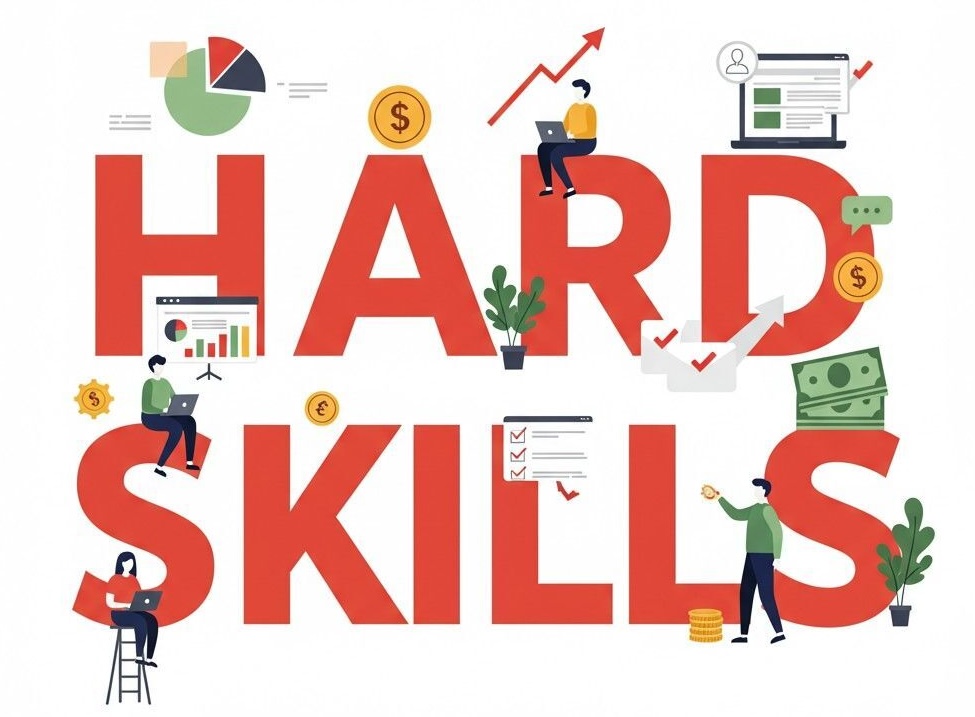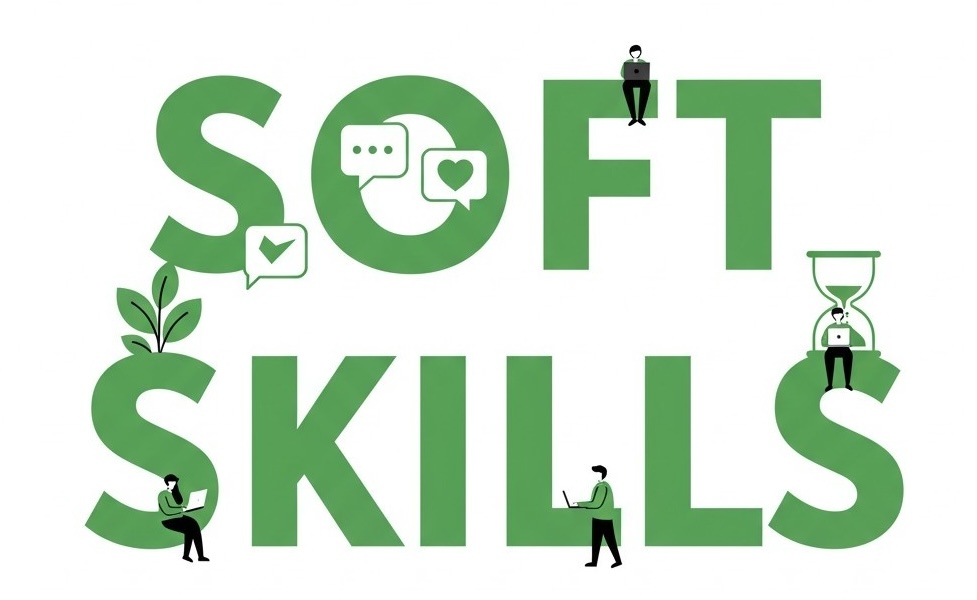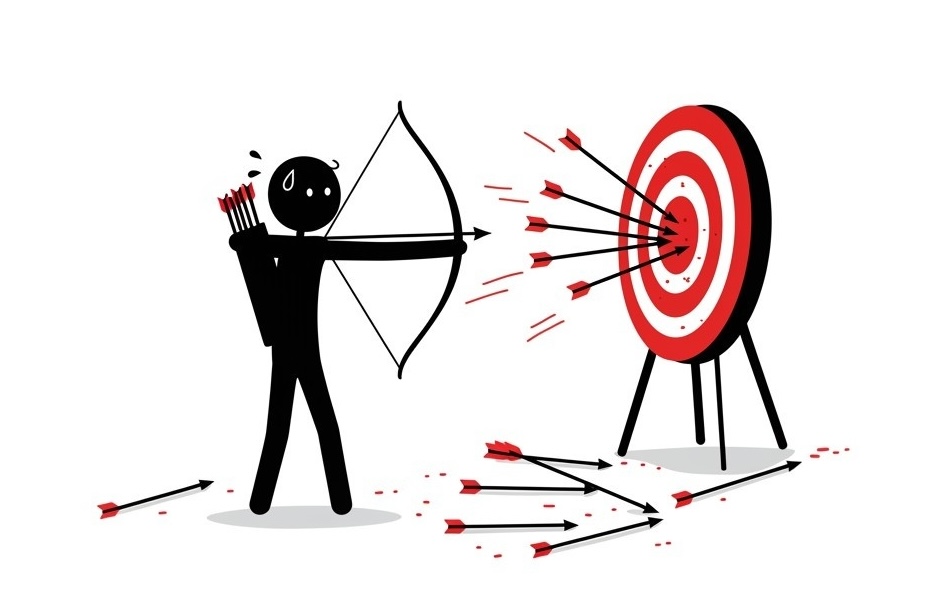No matter how seasoned or skilled you are, landing a role of this rank comes down to how effectively you present your project management resume skills. Let’s make something clear from the start: a generic resume won’t cut it. Hiring managers and Applicant Tracking Systems are scanning for specific skills that demonstrate leadership, technical knowledge, and the ability to handle complex projects. That’s why a focused project management skills resume is best for getting noticed.
Today, we’ll walk you through the essential hard and soft skills that every project manager should add to their resume. We’ll answer your main questions and give real-world examples of how to showcase these skills effectively and tailor your resume to job descriptions. This is expert-backed advice that leads to results!
Why project management skills for a resume are important
The skills you list on your resume can make or break your chances of getting an interview. Today, most companies use Applicant Tracking Systems (ATSs) to scan resumes for relevant keywords before a human even sees them. If you don’t include the right skills, both technical and interpersonal, the system will rank your resume low.
Getting through the ATS isn’t the only reason to worry about adding your project management skills to your resume. They serve as proof of your professional abilities. Employers wonder if you can lead teams, manage budgets, resolve conflicts, and deliver results on time. They are not just a mere formality. It’s how you show you have the right tools and traits to be successful in a manager role.
Aligning your skillset with what the employer is looking for is also important. Every company and every project is different. A software firm will value Agile and Scrum expertise, but a construction company will prioritize scheduling and cost control. You will tailor your resume to the specific job market trends and requirements. That shows you’ve done your homework and you’re the right fit for the role.
Top hard skills for project managers

Hard skills are the technical abilities and industry-specific knowledge that enable project managers to plan, execute, and deliver successful projects. These skills show employers that you have the practical tools required to manage teams, budgets, timelines, and risks. There are a few important hard skills that every project manager should consider including on their resume:
Technical and methodological expertise
When hiring managers evaluate you as a candidate for the job, they want to assess your knowledge of PM methodologies, tools, budgeting, and other techniques.
- Project management methodologies
Employers look for candidates who are knowledgeable in popular project management frameworks. Knowing which to apply in the right situation makes a significant difference in project outcomes. You should mention your familiarity with the following methodologies:
Agile — It’s ideal for fast-paced work environments, such as software development
Scrum — As a subset of Agile, it’s useful for short development sprints with defined roles and ceremonies
Waterfall — It’s best for linear projects with fixed requirements
Lean — It focuses on maximizing value by eliminating waste
Kanban — As a visual method for managing the workflow, it makes it more efficient
- Project management tools
Your ability to use modern project management software can improve collaboration within the team. The most popular tools include:
Jira
Trello
Microsoft Project
Asana
Monday
Listing these tools on your resume under the Technical Skills section shows you’re ready to start managing a team right away.
- Budgeting and cost management
Project managers must know how to create and manage budgets, allocate resources, and avoid cost overruns. Showing you’re experienced in financial planning, forecasting, and cost-benefit analysis will set you apart.
- Risk assessment and mitigation
Identifying risks before they become problems is a core responsibility of project managers. Your ability to conduct risk assessments, develop mitigation strategies, and use tools like risk matrices is worth mentioning in the resume accomplishments section.
- Resource planning and scheduling
Project managers must allocate personnel, tools, and time in the most efficient way possible. Show that you’re skilled in capacity planning, resource leveling, and using scheduling software such as Gantt charts or Microsoft Project.
- Data analysis and reporting
Data-driven decision-making is an important aspect of modern project management. It shows your ability to track KPIs, measure project performance, and present insights to stakeholders through dashboards and reports. It’s OK to rely on AI resume writing to get ideas on how to show your data analysis skills. But it’s important to include real examples and achievements that set your resume apart.
Certifications that prove your technical skills
Certifications are needed to validate your technical knowledge and show that you meet industry standards. If you check out successful project management skills resume examples, you’ll notice that relevant certifications make them credible. These are the most recognized credentials to include:
PMP (Project Management Professional) — Globally recognized and often preferred for mid-to-senior-level roles
PRINCE2 (Projects in Controlled Environments) — Popular in the UK and international organizations
Certified Scrum Master (CSM) — Important for Agile and Scrum-based roles
CAPM (Certified Associate in Project Management) — Ideal for entry-level project managers
Agile Certified Practitioner (PMI-ACP) — Valuable for Agile-focused environments
When incorporating certifications in the resume outline, include the full name, acronym, and the year obtained. The year is especially important if your certification is recent or renewed.
Must-have soft skills for project managers

Technical skills help you run a project efficiently. But soft skills are what make you a great leader. Project managers are constantly navigating people, processes, and problems. All at once! That’s why demonstrating your interpersonal and cognitive abilities is just as important as listing your tools and certifications.
These are the soft skills that hiring managers look for:
- Leadership
The ability to lead and coordinate a team toward a common goal is at the heart of project management. Strong leadership means setting clear expectations, motivating others, and holding team members accountable. To make this skill shine in your resume, you should highlight your experience in delegating tasks, managing cross-functional teams, and building team morale. It’s a good thing for candidates to mention in their resume objectives.
- Communication
Project managers are the central point of contact between stakeholders, team members, vendors, and clients. You need to communicate goals, timelines, and updates in your resume. Both written and verbal communication skills count! Use your resume to show that you can bridge gaps between technical and non-technical stakeholders!
- Decision-making under pressure
Projects don’t always go according to plan. It might be a last-minute budget cut or a missed milestone. Whatever the obstacle is, your ability to make quick, informed decisions can keep the project on track. Hiring managers value candidates who show strong judgment under pressure.
- Organization and time management
Juggling timelines, resources, and priorities requires strong organizational skills. In the resume, you should show that you can manage multiple projects at the same time. You can meet deadlines and maintain attention to detail, especially in fast-paced environments.
- Conflict resolution
Everyone wants to avoid disagreements between team members, vendors, or clients. But in real life, they are inevitable. What matters is your ability to resolve them constructively. So in the resume, you should show how you’ve handled team tensions, negotiated with stakeholders, or mediated conflicts to keep projects moving forward.
- Adaptability
Projects are continuously evolving. Think about shifting client needs and unexpected risks! Being adaptable allows you to adjust your strategy without losing momentum. Strategic thinkers can pivot when needed while keeping long-term objectives in focus.
Tailor your skills to the job description
Are you aware of the biggest mistake that job seekers make? — Submitting the same resume for every position.
Recruiters (and ATSs) are looking for resumes that match the specific job description. That being said, there’s a simple way to boost your chances of landing an interview: strategically align your skills with the employer’s expectations. Here’s how to do this the right way:
Identify keywords from the job post
Read the job listing. Read it again. Carefully! Look for repeated phrases, required qualifications, and specific tools or methodologies mentioned. These are the keywords that the ATS will most likely prioritize. Make a list of them and make sure they appear naturally in your resume, especially in the skills and experience sections.
Match your core competencies to the job requirements
Next step: compare your existing skills to the role’s requirements. Notice the points where there’s a clear match. If the job emphasizes Agile methodology and stakeholder management, prioritize those in your resume summary and work history. Customize your resume for each application to reflect what the company is specifically looking for.
Frame your skills with the STAR method
When possible, show your skills through result-driven examples using the STAR method:
Situation: Set the context
Task: Describe the goal or challenge
Action: Explain what you did
Result: Share the outcome
Don’t let theory confuse you. It’s actually easy to describe your skills the STAR way. Here’s an example: “Led a 10-member Agile team to streamline product delivery. Implemented daily stand-ups and sprint planning, which reduced development cycle time by 30% over three months.”
Best places to include skills on your resume
We covered the part of what skills to include. But that’s just the first step. Now, another big question arises: where should you place them? The position will make a significant difference in how recruiters and ATSs perceive your skills. To create a powerful, skills-focused resume for a project manager role, you should strategically mention your expertise in these sections:
Resume summary
It’s your elevator pitch. The summary is positioned at the top of your resume, and it should spotlight your top strengths, relevant experience, and career achievements. All that in 3-5 lines. This is a great place to mention high-value skills, such as leadership, Agile project delivery, or cross-functional team management.
Here’s an example: “Certified Project Manager with 8+ years leading Agile and Waterfall projects in the tech and healthcare sectors. Proven expertise in stakeholder communication, budgeting, and team leadership, with a track record of timely, under-budget project delivery.”
Skills section (or core competencies)
This is a dedicated section for your skills, so it’s easy for recruiters to quickly scan your technical and soft skills. Use a clean bullet list to categorize skills. Like this:
Agile & Scrum Methodologies
Microsoft Project, Jira, Asana
Risk Assessment & Mitigation
Team Leadership & Conflict Resolution
Work experience
Your work history should show your skills in action. Use strong action verbs, such as led, implemented, and optimized. Back up your accomplishments with numbers when possible. Integrate both hard and soft skills naturally into each bullet point. That’s the beauty of it: it has to be balanced.
Here are a few examples to get you inspired:
“Managed a $1.2M product launch project across three departments, delivering two weeks early and 10% under budget.”
“Facilitated weekly sprint planning and retrospectives for a 10-person Agile team. Improved release efficiency by 25%.”
Certifications, training, and tools
These are bonus sections, which are not mandatory for a resume. But if you’re applying for a position of this rank, they are much appreciated. If you hold relevant credentials or have completed specialized training, create a separate section titled Certifications or Professional Development. You can also add tools and platforms to the Technical Skills section if you have space.
Common mistakes to avoid when adding project management skills

Even experienced professionals can make missteps that weaken their resumes. Avoid these common pitfalls to make sure your skills stand out for the right reasons:
❌ Overstuffing the resume with buzzwords
Team player, go-getter, visionary leader… yes, it feels natural to use these terms when writing about your skills. They may sound impressive, but they mean little if you don’t provide some context. Don’t pack your resume with trendy jargon! Instead, focus on meaningful, role-specific language and achievements backed by results.
❌ Listing skills without proof
Saying you’re great at stakeholder communication or resource management won’t impress anyone. If you prove it through metrics, outcomes, and specific examples, you’ll get a chance. That’s how you show the way you’ve applied those skills in past roles.
❌ Including outdated or irrelevant tools
Don’t list any tools or methodologies that are no longer used, unless the job description directly mentions them. MS Project may still be relevant in some industries, but if the role focuses on tools like Jira or Monday, then you should prioritize those.
❌ Making the skills too generic or too technical
If your resume is too vague, it won’t be appealing. But the other extreme, too much complex terminology, is no good, either. As always, you’ll need to find a balance. Use clear language that shows you understand both the technical and strategic sides of project management!
Resume writing tips for project managers
Writing a project manager resume that grabs attention isn’t easy. It’s more than just listing job titles and responsibilities. The most successful resumes are achievement-oriented, visually clean, and constantly evolving as the applicant’s skillset grows.
We’ll give you a few strategies to help you reflect your true value through your resume.
- Focus on achievements, not just duties
Too many resumes read like job descriptions. “Managed a team,” “Led meetings,” “Handled budgets.” Those tasks are part of the job, granted. But they say nothing about how well you performed. Instead of writing vague statements like those, focus on outcomes. Did your team improve delivery timelines? Did you reduce costs or increase client satisfaction? Employers want to know what impact you’ve made, not just what you were assigned to do.
- Use numbers to back your skills
Quantifying your achievements is one of the most effective ways to prove your value. Numbers stand out and give context to your work. Here are a few examples:
“Delivered 12 software projects on time and 15% under budget over two years.”
“Led a 10-member team to execute a product launch that generated $500K in revenue within the first quarter.”
Numbers like these give your resume some credibility. Thanks to the data you provide, hiring managers can quickly evaluate your capabilities.
- Keep the formatting clean and professional
A cluttered resume can distract from your skills. It’s best to use a modern, ATS-friendly format with clearly defined sections: Summary, Skills, Experience, Certifications, etc. Go for professional fonts like Arial or Calibri. The resume is not the place to get artsy. Avoid excessive design elements since they may confuse the ATS and make information hard for a human reader to find. You can use bullet points to enhance the resume’s readability, and consistent spacing for a polished finish.
- Tailor your resume for each role
No two project management positions are exactly alike. A one-size-fits-all resume won’t work. It’s important to customize your resume for each application, so you’ll reflect the language, skills, and priorities of the posting. Focus on the qualifications that are most relevant to the role, and adjust your summary and skills sections accordingly. Since you already have a resume, adjusting it won’t require too much effort.
- Keep learning new skills and updating your resume
Can you think of a field more dynamic than project management? New tools, methodologies, and industry demands are always emerging. It’s important to update your resume to include new certifications, technologies, and leadership experience. Even if you’re not actively job hunting, keep your resume current! You should always have it ready for unexpected opportunities, such as promotions, consulting gigs, and speaking engagements. Don’t forget to update your LinkedIn profile, too!
When to consider hiring a pro writer
Even the most accomplished project managers may find it hard to translate their experience into a compelling resume. Maybe you’re switching industries, stepping up into a senior role, or simply trying to stand out in a competitive job market. In any of those situations, hiring a vetted resume writing service might be the strategic move you need to make.
These are the most common occasions when project managers benefit from pro writers:
- Transitioning roles or industries
Project management is a versatile field. Most of your skills are transferable across sectors, but only if you present them effectively. If you’re moving from, say, construction to tech, or from operations to product management, a professional resume writer can help reposition your experience. They know how to spot your transferable skills and align your background with the expectations of a new industry.
- Struggling to effectively frame experience
It’s common to underestimate your own achievements or get too deep into the weeds of your job duties. A professional writer brings an objective perspective. They can help you highlight what truly matters: leadership, results, impact! They will craft results-oriented bullet points and ensure your resume tells a clear story. A story that aligns with your career goals!
- Not getting any interviews
Your experience and relevant skills are certainly important, but they may not be enough to land you interviews. In such a situation, your resume could be the issue. Maybe it’s not optimized for the ATS, or maybe it’s failing to grab the recruiter’s attention in the first 10 seconds. A writing expert can improve your resume for both human readers and digital filters. They can make your qualifications shine through.
- Short on time or confidence
Project managers are busy professionals. If updating your resume keeps failing to the bottom of your to-do list or you’re not sure if your writing measures up to today’s standards, it’s time to delegate the task. Remember: a well-crafted resume isn’t just a document. It’s your professional marketing tool. And sometimes, investing in expert help is the smartest project you can manage.
Resumeble’s curated resume packages can help you create a resume that highlights your project management strengths. It will be tailored to your goals, experience, and the current job market. We can help you present your skills with clarity and confidence, regardless of the role you’re targeting.

